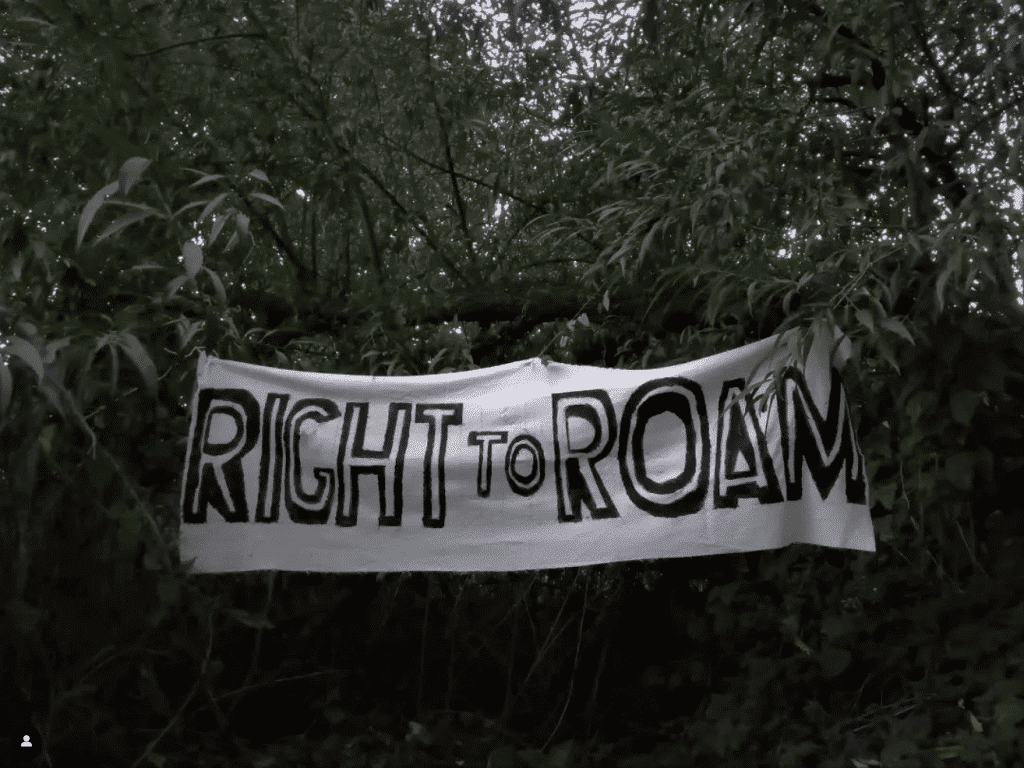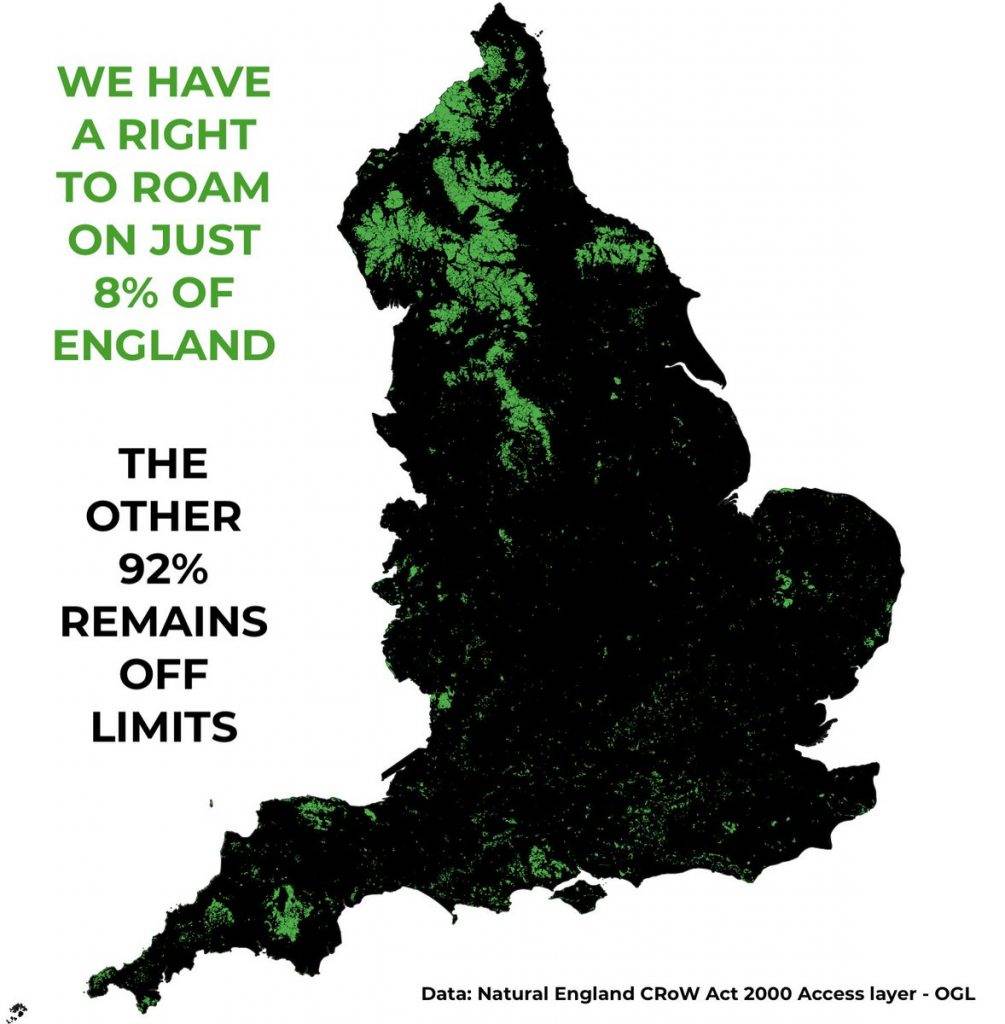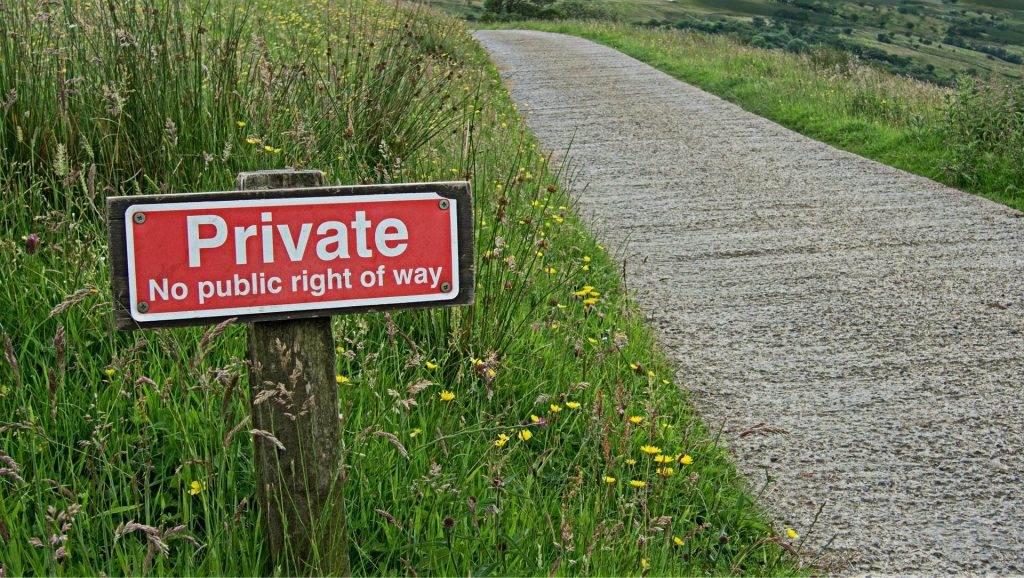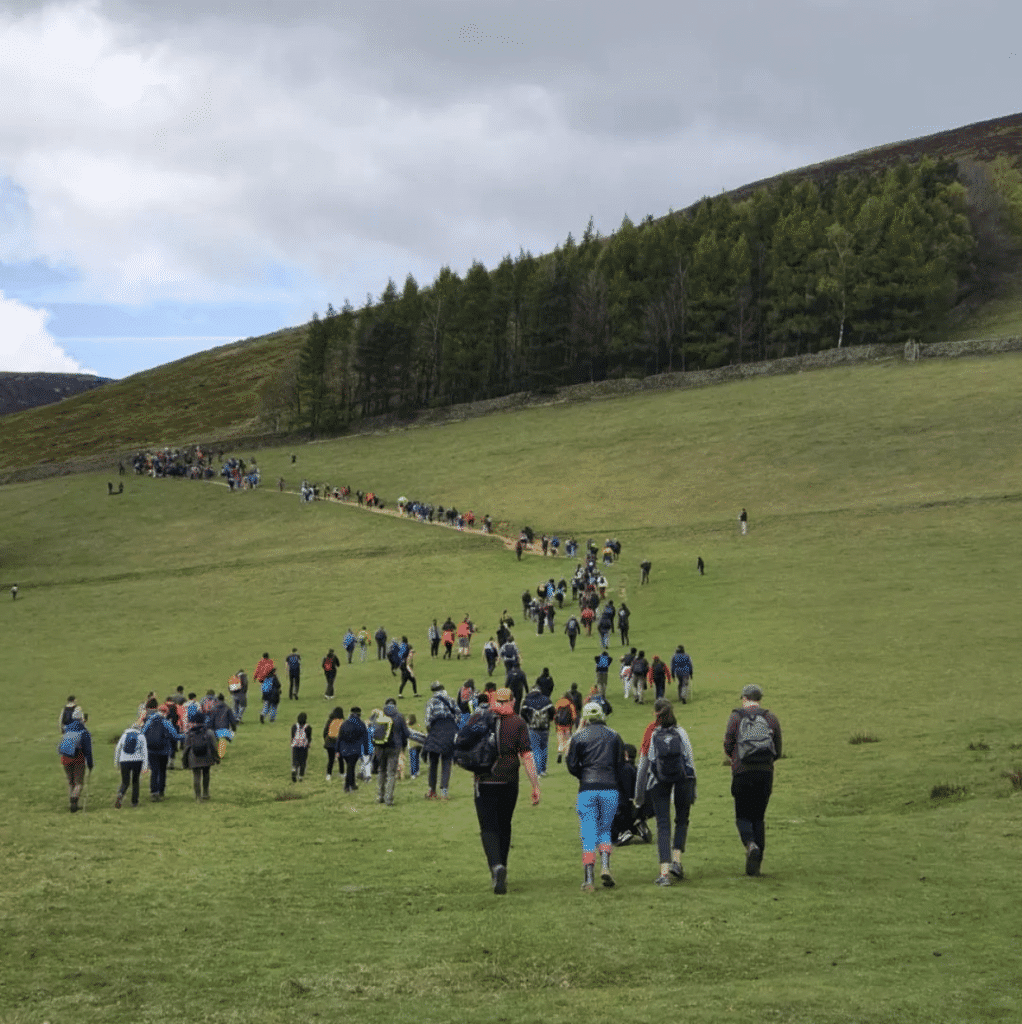
There are many circumstances in which the laws of England feel unfit for purpose. Given the natural beauty of this island, it’s disheartening that members of the public have legal access to a mere 8% of the countryside. Though the legal consequences of trespassing are not exactly fear mongering, this is a point of contention that possesses a wider meaning in regards to our relationship with nature as well as the harmony between old wealth and the rest of society.
There is a veil of secrecy behind land ownership in this country and the narrative that aristocracy is of decreasing importance is simply a myth. The harrowing fact that ‘half of England is owned by approximately 25,000 individuals’ speaks to the vast imbalance of power embedded into the very soil we tread. Whilst the idea of dismantling the structures which sustain this feels dream-like, the Right to Roam campaign is amplifying the sense of importance of a harmonious relationship between England’s population and its land.

The healing powers of nature are an increasingly triumphant subject of scientific research, contrary to the efforts of the ‘big pharma’ corporations who quite literally profit from society’s malhealth. The benefits of connecting with nature are felt physically, mentally and spiritually so the placement of the Right to Roam as part of the welfare state alongside the NHS is completely logical. During the pandemic green space became an essential lifeline to us all and thankfully there seems to have been an afterglow which has seen people maintain that relationship. This is why now is the perfect time to reform England’s laws and attitudes towards nature.
It must be acknowledged that there are many other problems facing our country right now, and for those who are struggling to navigate the cost of living crisis, access to nature may seem trivial. However the Right to Roam campaign is focussed on creating accessibility to nature for members of society from all backgrounds so that the benefits are shared.

In the manifesto on their website they discuss how pursuit of the countryside developed from a predominantly working class pastime into the increasingly middle class activity it is today. They also speak of the discomfort Black and People of Colour communities can feel treading on private estates ‘built from the profits of enslaving and trading African people, of West Indian Sugar plantations and East Indian colonialism.’ The manifesto outline the importance of addressing these amongst other issues going forward.

At the foundation of the Right to Roam is assurance that ‘the government actively encourages people to go outside. By removing any sense that being in nature is a criminal activity, and instead is promoted by the state, the Right to Roam curates a common, national consensus of an inherent connection with nature.’ In addition, by educating the public of the countryside code there becomes a greater awareness of our impact on the environment, facilitating a changed perspective on our responsibility to act on the climate crisis which is already at our feet.

The Right to Roam campaign offers an opportunity to help to steer the ship of this country in a more holistic direction – one that champions responsible coexistence with nature and each other. Whilst most other topics of debate in the contemporary are highly politicised, the Right to Roam is surely something that is agreeable to all. With support, our country can redefine its relationship with its land in a way that is wholly positive. Read more about the Right to Roam campaign here
